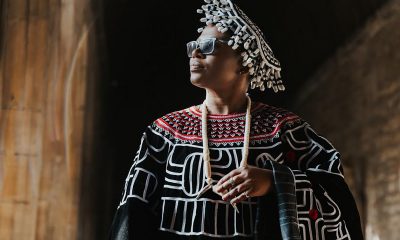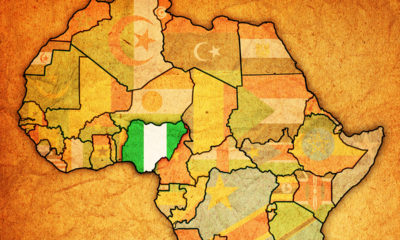Africa
Six queer Nigerians talk about what Pride means to them
Same-sex relationships remain criminalized in country
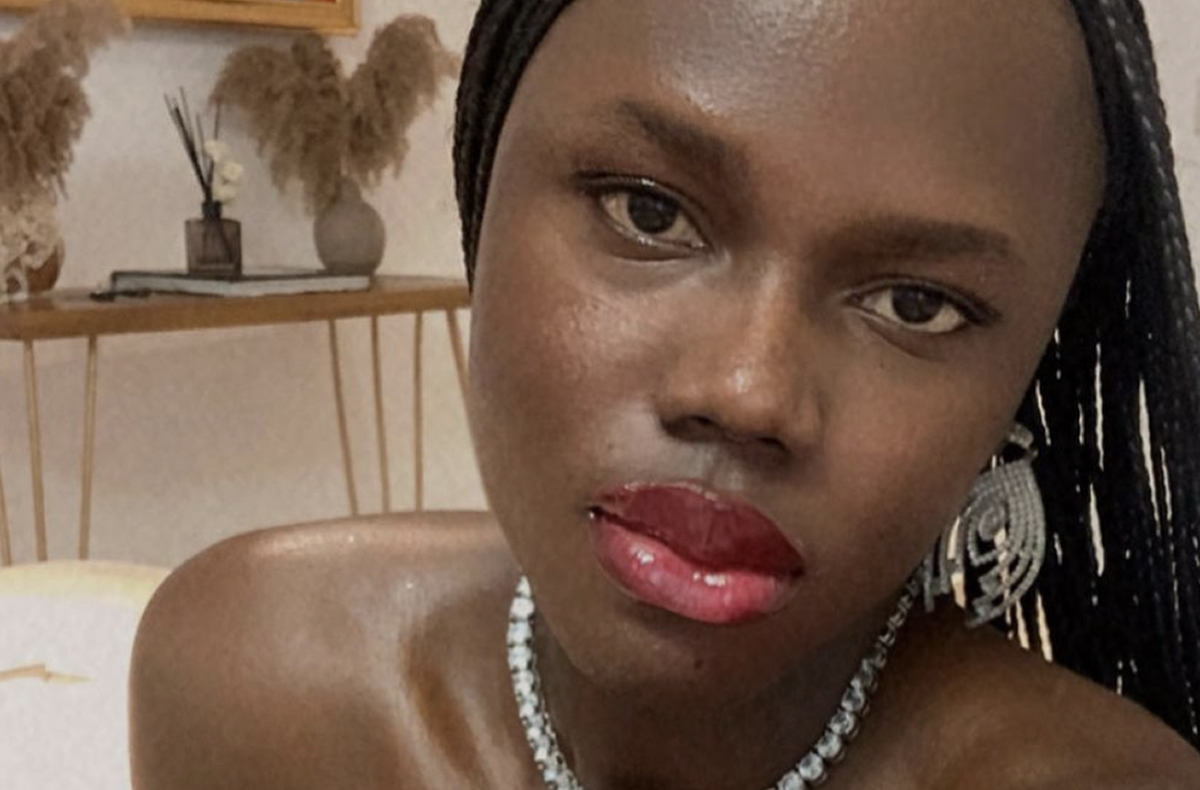
In a world that continually strives for progress and inclusivity, the rights and experiences of LGBTQ individuals remain a paramount measure of a society’s commitment to equality. This holds true for Africa, a continent that grapples with a complex tapestry of cultural, religious and legal challenges surrounding queerness. Specifically, Nigeria stands as a striking example, where the struggle for LGBTQ rights intertwines with deeply ingrained societal norms and the weight of colonial legacies.
Across Africa, the LGBTQ community faces a range of legal and social hurdles, often rooted in colonial-era laws and cultural conservatism. These struggles mirror a global pattern, where queerness intersects with historical prejudices, societal biases and a lack of understanding. While some African nations have taken significant steps toward recognizing and protecting LGBTQ rights, Nigeria remains ensnared in a deeply polarized landscape.
Nigeria’s legal landscape is marked by the introduction of anti-gay laws that have exacerbated the challenges faced by the queer community. The Same-Sex Marriage Prohibition Act, enacted in 2014, is one such legislation that has perpetuated discrimination and created an environment of fear and hostility for openly queer individuals. Under this law, same-sex relationships are criminalized, with penalties ranging from imprisonment to public ostracism.
Within this oppressive framework, queerness takes on a profound significance for individuals who dare to express their authentic selves. It becomes a powerful assertion of identity, a catalyst for change, and a pursuit of equality and freedom. The queer community in Nigeria embraces diverse identities, encompassing sexual orientation, gender identity, and gender expression, challenging conventional norms and redefining societal perceptions.
For many openly queer Nigerians, Pride month serves as a symbol of resilience, solidarity and hope. Despite the absence of large-scale public celebrations, queer individuals and their allies find ways to commemorate and uplift the community’s spirit. Pride month offers an opportunity to foster dialogue, raise awareness and amplify voices that have long been silenced.
At its core, queerness in Nigeria embodies a profound longing for acceptance, understanding and love. It calls for a society that recognizes and values the richness of human diversity, free from discrimination and prejudice. Queerness invites us to question the notion of what it means to be human, to challenge the confines of traditional gender roles, and to embrace love and relationships in all their diverse forms.
As we explore the experiences of openly queer individuals during Pride month in Nigeria, it is essential to recognize the ongoing struggle for equality. It is a struggle that demands our attention, empathy, and a collective commitment to dismantling the barriers that hinder progress. By amplifying the voices and stories of the queer community, we can begin to foster an environment of inclusivity, understanding, and acceptance in Nigeria and beyond. The Washington Blade spoke with seven queer Nigerian on what Pride month means to them, amid the country’s extremely strict anti-gay policies.
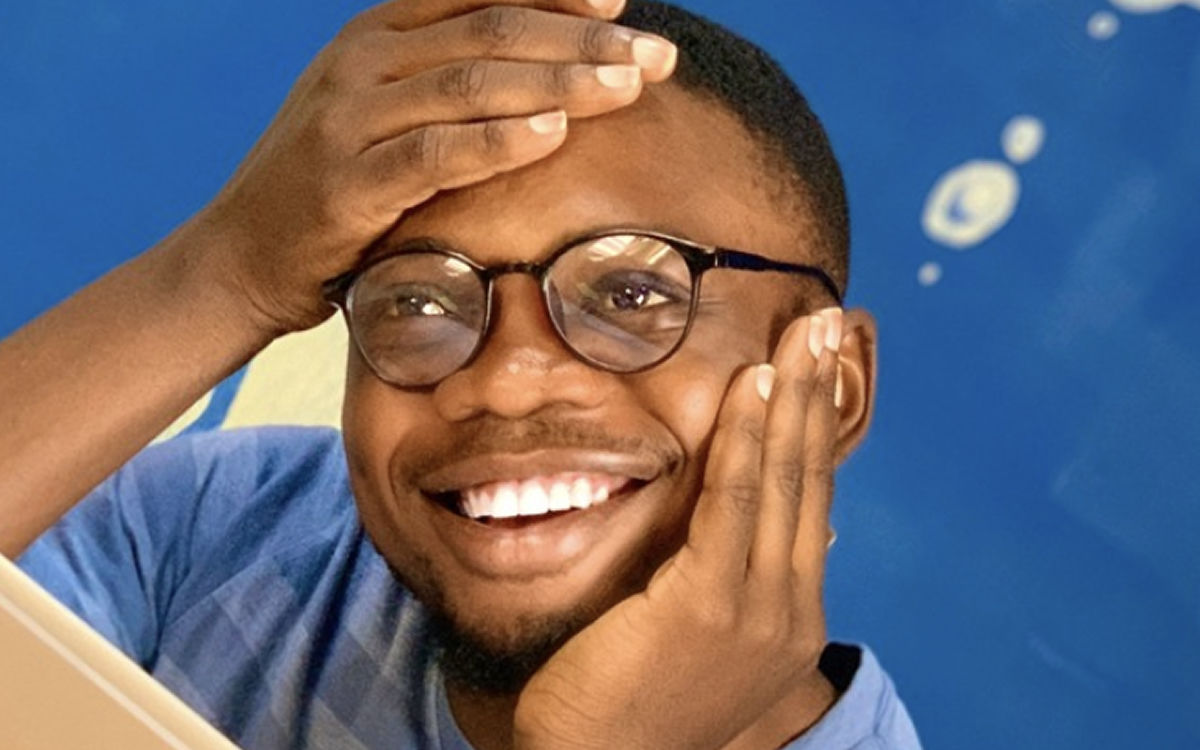
Justin Chidozie (He/Him)
Justin Chidozie founded the Center for Health Education and Vulnerable Support in 2019. CHEVS prides itself as a people-centric society, which pushes for everyone to have equal access to health and human rights, irrespective of sexuality, gender and social status.
“For me, it’s simple,” he tells the Blade. “It’s celebrating resilience, celebrating community, and also celebrating the ancestors of the LGBTQI+ advocacy movement. I do not just see it as the whole parade, but I [also] see it as a time of reflection of how far we have come. This year, Pride [was] extremely special to me because [we] have seen the rise of the anti-gender movement, and the christian evangelical movement in Africa, trying to support the parliament with all the funds at their disposal, trying to criminalize LGBTQI+ identities.”
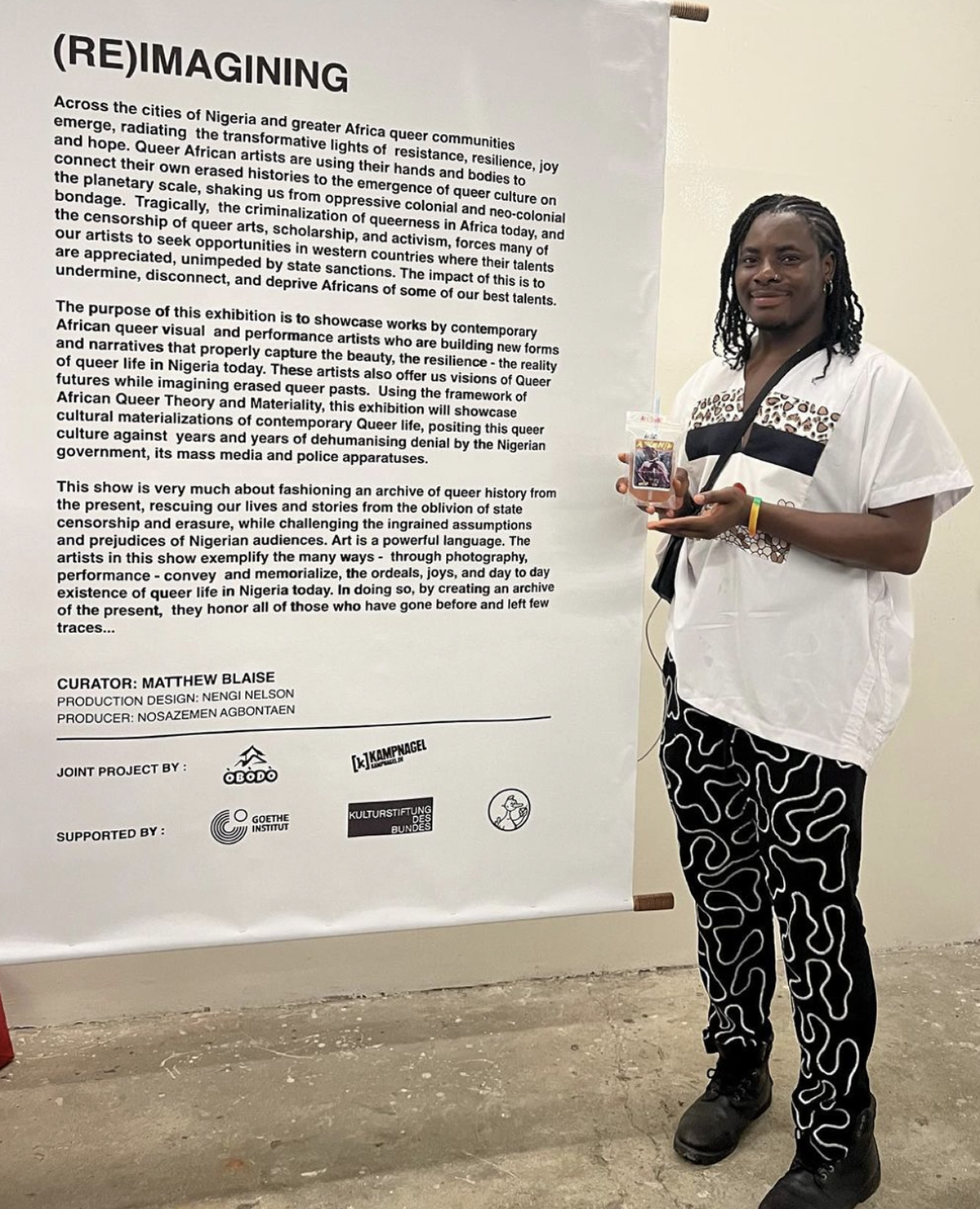
Matthew Blaise (They/Them)
Matthew Blaise has been one of the most vocal activists of queer rights in the conservative Nigeria. They’re the founder of Obodo Nigeria, a Nigeria-based non-profit organization that’s working to promote positive representation and humanization of queer people through educating, upholding, empowering, and promoting the rights and humanity of all Nigerians.
“Pride month for me is honestly just like every other month,” they say. “I mean, it’s great that it’s been celebrated, but within Nigeria, it’s just like every other month; and I say this because I still have to deal with the struggles of being queer for everyday of my life. For me, it’s also a reminder of my own resilience and resistance within this largely homophobic and transphobic framework of a country. It’s really just a reminder for me to celebrate that power that I have, and the one that has kept me going. I see it as one of those times when I have to remind myself that I am deserving of love, care, and security.”
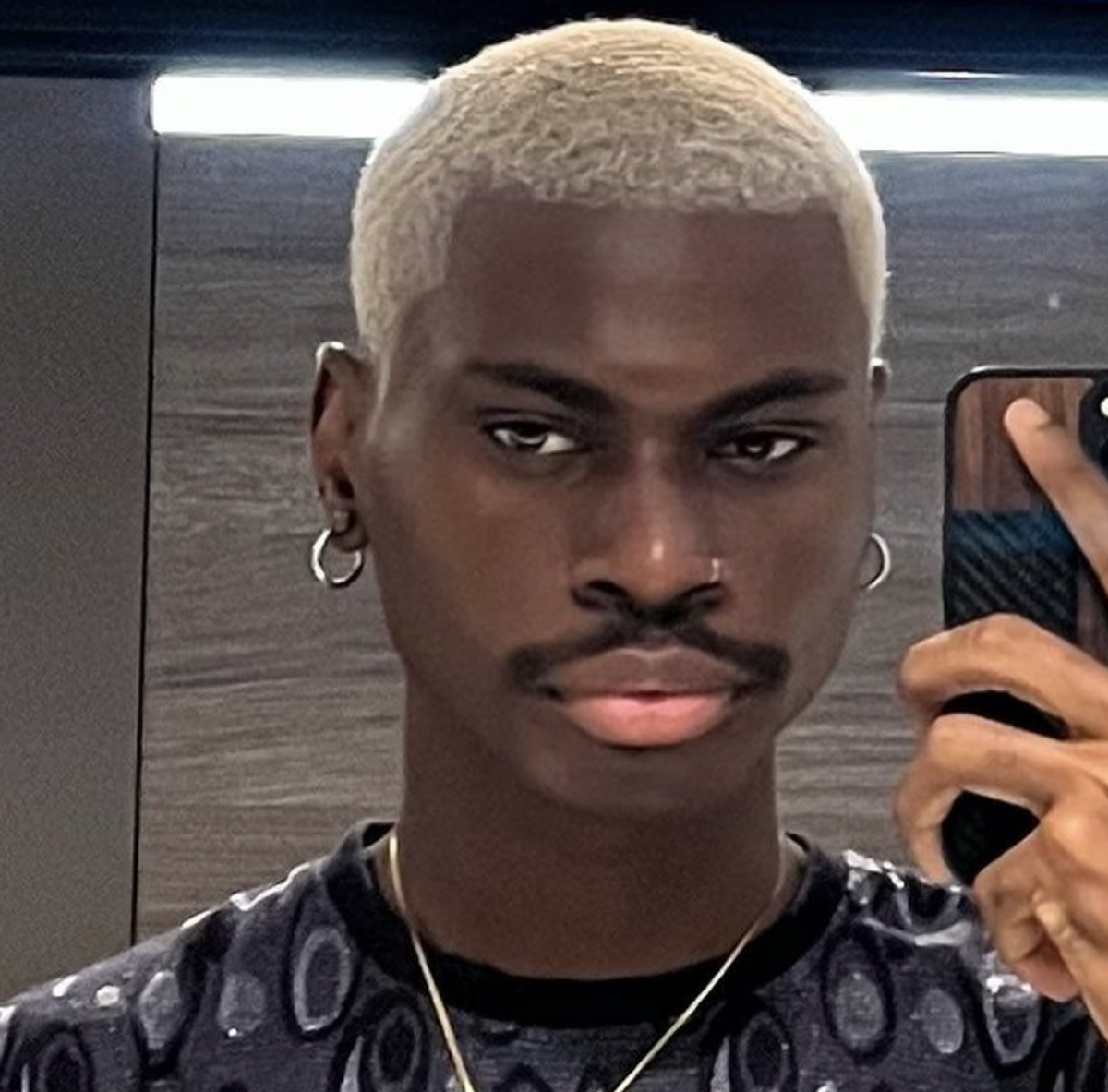
Chisom Peter Job (He/Him)
Chisom Peter Job is an openly queer journalist and the current managing editor of film and television media company, Statement Films, built for African creators. Job’s works, which have been featured in Washington Post, the New York Times, Al Jazeera, etc., really focuses on queer life, and how that interfaces with our screens.
“Pride month for me is a month of happiness, a month to be very queer, and a month to celebrate queerness in a very different way,” he tells the Blade. “I mean, I celebrate my queerness every other day, but living in Nigeria, Pride month is just that month when there are a lot of things happening to queer people, and [we’re] just free to do whatever. It’s an important celebration done in Nigeria because a lot of things happen that makes it easy for queer people here to enjoy what it’s all about. Pride balls happen in other places outside the country, and we’ve managed to create a space for it to easily happen here. Whilst the SSMPA (Same-Sex Marriage Prohibition Act) exists, the Pride tells them that ‘we are here, and we’re here with Pride.’”

Fola Francis (She/Her)
Fola Francis is an openly transgender Nigerian woman, who is the founder of fashion brand, Fola Francis, and a nascent food (salad) blogger. Last year, she made “herstory” by being the first openly trans woman to walk on the runway at Lagos Fashion Week, one of the biggest fashion conventions in Africa. This year, she played host to the Ball Party of Pride in Lagos.
“Celebrating Pride in a country like Nigeria where queer lives are criminalized is just, for me, pushing back against the shitty laws that exist to invalidate our sexual orientations and gender identities,” she says. “Ballroom Culture for example, is freedom at its peak. There’s just this level of freedom and no judgement, just community and over the top fun. It’s the most beautiful thing ever. The fact that we’re still celebrating and resisting amidst this chaotic climate for queer people, is what makes it surreal, and even more special. We’re damning the consequences and celebrating our beauty and uniqueness.”
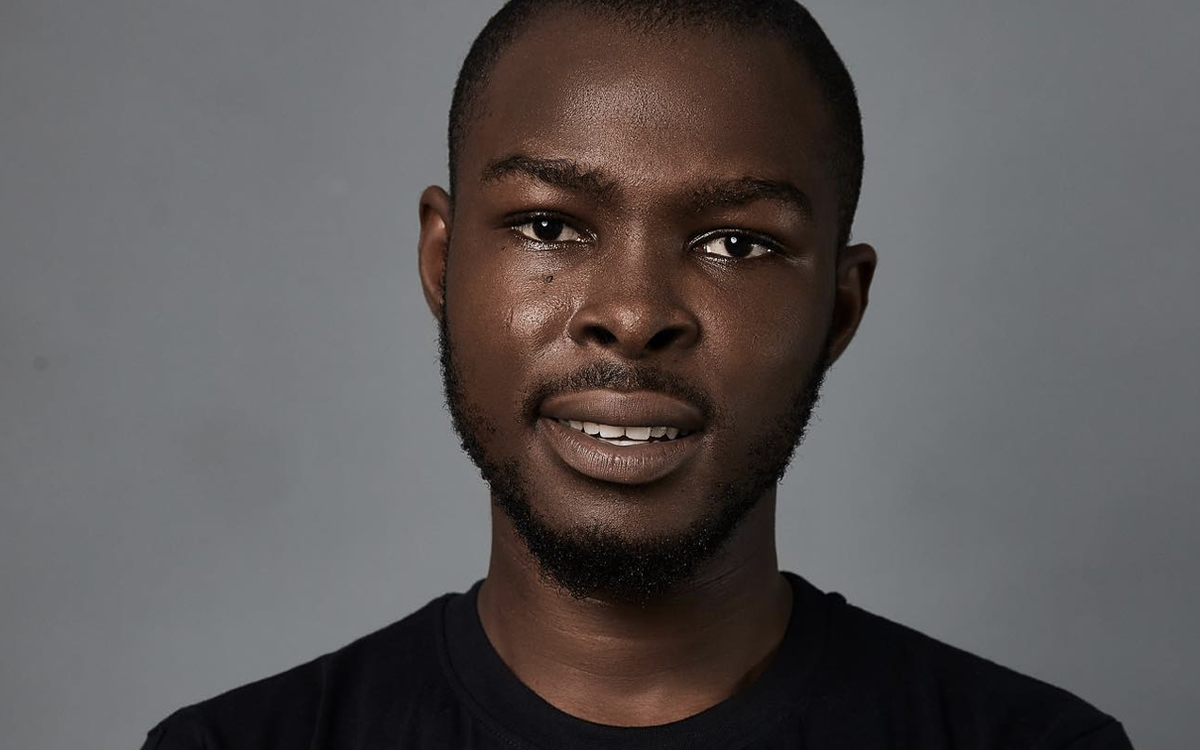
Olaide Kayode Timileyin (He/They)
Olaide Kayode is an openly queer Nigerian activist who runs the queer-focuded organization and media, Queercity Media. Although first started as a podcast called Queercity Podcast, the center of Timileyin’s works premises on celebrating and telling the untold stories of LGBTQ Nigerians and across Africa. To that end, they’ve worked with platforms like HBO, Grindr, etc., and have been one of the leading organizers/founders of Pride in Lagos, an annual, and one of the most widely anticipated gatherings of queer Nigerians.
“At the core of our work at Queercity is ‘queer joy,’ and that is not just about building resilience everyday or speaking against policies, but that we also carry queer joy. That is what Pride means to me,” they say.. “It is carrying those trauma, those shame, that fear, and every other negative thing into the dancehall, and celebrating the discarding of them. It’s proof that we still thrive, as we take the little we have, and create joys/smiles from it.”
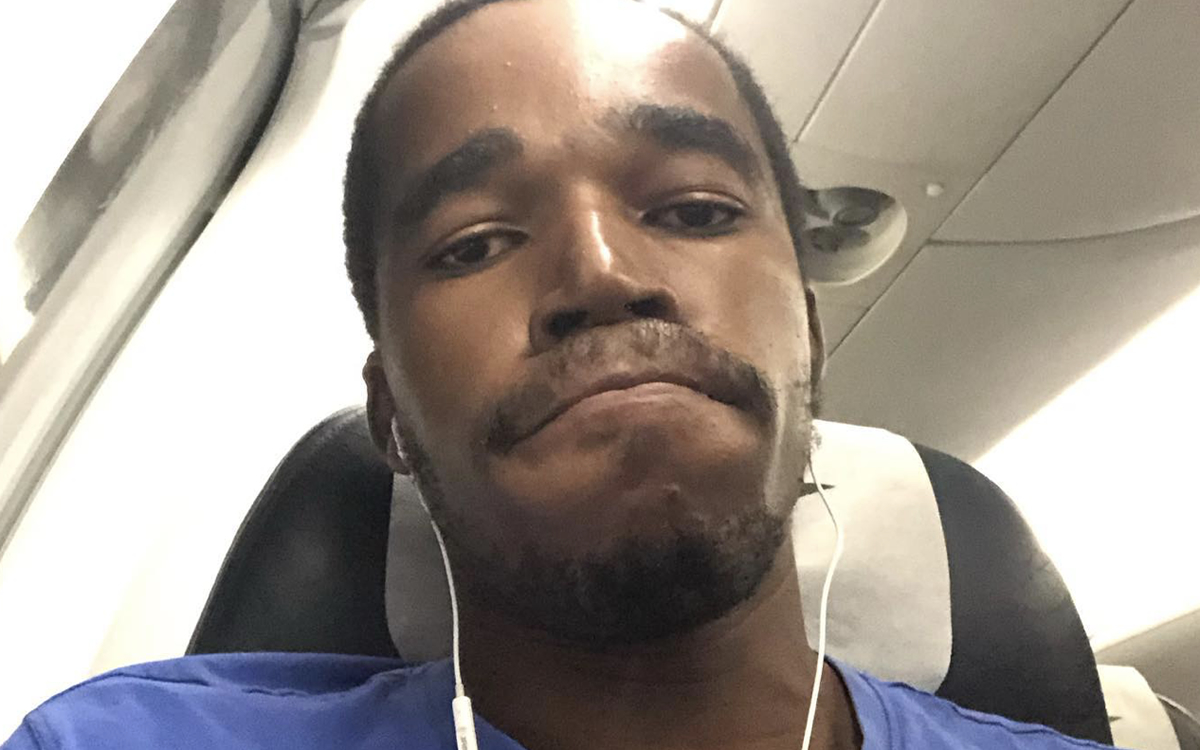
Rex Okey Opara Jr. (He/Him)
Popularly called Raldie, Rex Okey Opara, Jr., is an openly queer multidisciplinary musician and artist with an unconventional, creative and fluidity in his tone. His sounds are highly mysterious, and it takes a certain level of attention to grasp the undertone of the message. His songs mostly emerge from a place of personal experience, and are really just a nuanced atonement to life in general. He was one of the key performers at Pride in Lagos, and has had the chance to do a fellowship at Germany-based talent hub, Goethe Talents.
“When I think of Pride month, I think of it as how everyday should be, which is loving life in confidence in who I am as a queer person. It’s really just another time to celebrate every facet and piece of me, without shame, worrying, or expectations,” he tells the Blade. “In Nigeria, there aren’t a lot of opportunities for our queerness to be acknowledged. A lot of times, society shapes itself in such a way that queer people are usually read as invisible and unworthy. I think it’s just as important a celebration as any, to say to ourselves that even if the world doesn’t see us, we see ourselves, and we love each other.”
Kenya
Kenya Red Cross-owned hotel to host anti-LGBTQ conference
Speakers from US, European countries to participate in May 12-17 gathering
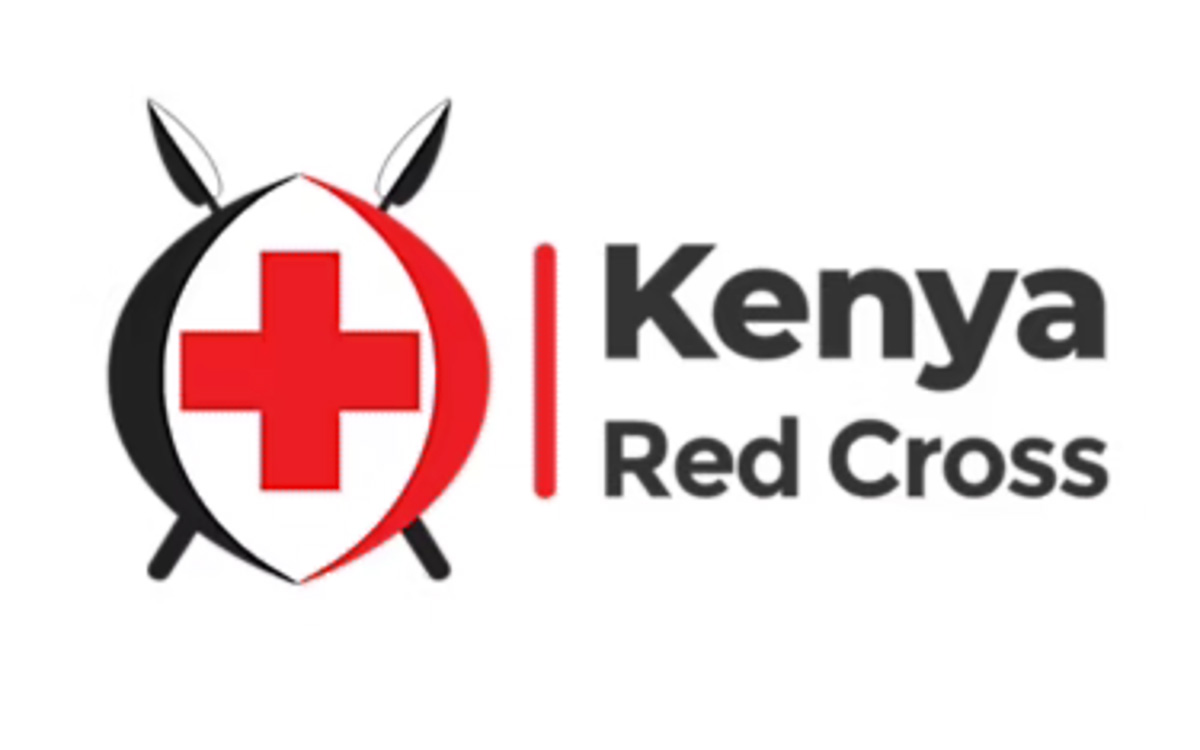
Plans to host a family values meeting next month in a 5-star hotel in Nairobi that the Kenya Red Cross Society co-owns have sparked an uproar among local queer rights groups.
The groups accuse the Kenya Red Cross of violating its Global Fund commitment of protecting key populations by allowing its Boma Hotel to host an “anti-gender and anti-LGBTQ” conference.
Influential guest speakers from the U.S., the Netherlands, Spain, and Poland will preside over the Pan-African Conference on Family Values that will take place from May 12-17. The Kenyan advocacy groups say these speakers’ organizations are globally recognized for undermining LGBTQ rights.
“As the principal recipient of Global Fund in Kenya, hosting this event contradicts (the) Red Cross’s humanitarian mission and threatens the safety and dignity of people living with HIV, women and LGBTQ+ individuals, the communities that Kenya Red Cross Society has long committed to supporting,” the queer rights groups state.
The LGBTQ groups that have criticized the Kenya Red Cross include Upinde Advocates for Inclusion, the Initiative for Equality and Non-Discrimination, and Gay and Lesbian Coalition of Kenya. They have also launched an online signature collection drive to compel the Kenya Red Cross to withdraw the hotel from hosting the “Promoting and Protecting Family Values in Challenging Times”-themed conference.
“The event’s so-called ‘family values’ narrative is a smokescreen for policies that push hateful legislation and promote death, discrimination, femicide, gender-based violence, and restrict fundamental freedoms across Africa,” the groups said.
The pro-life Western organizations that are scheduled to participate in the conference include Family Watch International from the U.S., CitizenGo from Spain, the Ordo Luris Institute from Poland, Christian Council International from the Netherlands, the New York-based Center for Family and Human Rights (C-FAM), and the Foundation for American Cultural Heritage. Their local counterparts include the National Council of Churches of Kenya, the Kenya Christian Professionals Forum, the Africa Christian Professionals Forum, and the Evangelical Alliance of Kenya.
C-FAM President Austin Ruse; Family Research Council Vice President for Policy and Government Affairs Travis Wever; Global Life Campaign Executive Director Thomas W. Jacobson; and the Rev. Ricky Chelette, executive director of Living Hope Ministries, Inc., and president of the Institute of Biblical Sexuality are among the U.S. guest speakers. Other participants include Henk Jan van Schthorst, president of Christian Council International’s board of directors, Ordo Luris Institute President Jerzy Kwasniewskie and his colleague, Rafal Dorosinski, director of the group’s Legal Analysis Center.
The Kenyan groups through their online petition — “Tell Red Cross Kenya Not to Give Hate a Platform” — has so far raised more than 1,000 of the 10,000 signatures they hope to collect. The petition is addressed to Red Cross Kenya Secretary-General Ahmed Idris and his predecessor, Abbas Gullet, who is the hotel’s director.
“We call on you to immediately cancel this booking and publicly reaffirm Red Cross’ commitment to human rights, health and inclusivity,” the petition reads. “Failure to act will raise concerns about whether (the) Red Cross can still be trusted by the community to lead with empathy and fight for their rights.”
The Kenya Red Cross, however, maintains the Boma Hotel is a separate entity, even though public records indicate it is one of the facility’s shareholders.
The LGBTQ groups note the hotel should be a safe space that promotes inclusion, not platforms that enable “harmful gathering” for hate and exclusion by “dangerous groups.”
“By providing a venue for this event, Red Cross directly enables a platform for hate and discrimination — a stark contradiction to the values of inclusivity, humanity, and nondiscrimination that the organization claims to uphold,” they said.
The organizations further warn that proceeding to host the conference threatens the relationship between the Red Cross and the marginalized communities who have long depended on the humanitarian organization for support and protection. CitizenGo has nonetheless criticized the LGBTQ groups, which it describes as “radical activist groups” for “trying to silence a pro-family event” and asked the Kenya Red Cross and the Boma Hotel not to back down.
“These groups are calling the event ‘hateful’ because it affirms the natural family — marriage between a man and a woman — and the dignity of every human life, including the unborn,” Ann Kioko, the group’s campaign director for Africa and the U.N., said.
Through an online counter signature collection drive, Kioko holds CitizenGo and other groups won’t be intimidated, silenced or apologize to the queer rights groups for defending “our families, our faith and our future”.
“The real goal of these foreign-funded activist groups is to impose LGBTQ and gender ideologies on Africa — ideologies that have led elsewhere to the confusion of children, the breakdown of family structures and the rise of sexual libertinism that results in abortion, STIs and lifelong emotional and psychological trauma,” Kioko stated.
Africa
LGBTQ activists in Africa work to counter influence of American evangelicals
Lawmakers continue their crackdown on queer rights

American far-right evangelical organizations fund African MPs and religious groups and support their advocacy efforts against homosexuality.
The support for the two influential groups on the continent has contributed to increased homophobic rhetoric for conservative family values through religious teachings and public policy. Open for Business, a coalition of leading global organizations that champion LGBTQ inclusion, revealed this trend in its latest report that surveyed the East African countries of Kenya, Uganda, Tanzania, and Rwanda.
“The anti-LGBTQ+ agenda driven by Christian groups in Kenya and Uganda has received significant funding and support from foreign anti-rights groups, particularly from U.S. far-right evangelical organizations,” the report states.
The two nations, along with Tanzania, have had heightened curtailing of queer rights in recent years through legislation and religious protests. Homosexuality remains criminalized in the three countries, with varied jail terms of not less than 10 years.
“There is much misinformation and disinformation being circulated in Kenya about LGBTQ+ issues — churches are behind much of this, and they leverage selective interpretations of religious teachings to stir up anti-rights sentiments,” the report reads.
It adds religious groups have attained greater influence with their homophobic campaigns under President William Ruto, who is Kenya’s first evangelical Christian head of state.
The American far-right evangelical churches are part of the New York-based World Evangelical Alliance, whose global believers are considered “incredibly diverse and vibrant people of faith.”
“They are bound together by spiritual convictions that they consider ‘non-negotiable’ while acknowledging a wide variety of expressions in non-essential matters such as their style of worship,” the Rev. Leon Morris, the founder member and former chairman of Evangelical Alliance of Victoria, states on WEA’s website.
The religious groups under the Kenya Christian Forum, in partnership with Linda Uhai Consortium (or Protect Life in Swahili) composed of pro-life organizations, late last month held their annual march in Nairobi, the country’s capital. Opposition to LGBTQ rights was among the agenda items.
Some anti-homosexuality placards that march participants held read, “Homosexuality is abnormal,” “Rainbow belongs to God,” “No to Western cultural imperialism, yes to family values,” and “In the beginning God made them; male and female.” The organizers also criticized the Kenyan courts over their recent rulings in favor of the queer community, such as allowing the National Gay and Lesbian Human Rights Commission to register as a non-governmental organization.
The African Inter-Parliamentary Conference on Family Values and Sovereignty is a caucus of African MPs that American far-right evangelical organizations support to drive anti-LGBTQ policies in their countries.
The group held its second conference in Entebbe, Uganda, last May. The definition of sex and sexuality and their impact on LGBTQ issues were among the topics that delegates from more than 20 countries discussed.
The three-day conference that Ugandan Parliament Speaker Anitah Among and Henk Jan Van Scothorst, director of the Christian Council International, sought to curb homosexuality. The delegates also resolved to have the African Caribbean Pacific and European Union Economic Partnership, also known as the Samoa agreement, reviewed for undermining the sovereignty of African governments over LGBTQ rights and related “human rights” issues.
The far-left government officials and queer lobby groups from the U.K. and other Western countries, meanwhile, are engaging with LGBTQ activists in Africa to counter American evangelical organizations’ anti-homosexuality campaigns.
British officials, led by Equalities Minister Nia Griffith, in February met with Sexual Minorities Uganda Executive Director Frank Mugisha and Erick Mundia, a senior policy advisor for Ipas Africa Alliance, a Kenya-based abortion rights advocacy group.
“As part of our Queering Atrocity Prevention program, which seeks to center LGBTQI+ rights and risks as part of atrocity prevention and wider peace and security, our team held a parliamentary roundtable exploring the implications of transnational far-right organizing for global LGBTQI+ rights and how the UK parliament can respond,” the statement reads.
Klara Wertheim, head of global programs at Stonewall, and Farida Mostafa, queering atrocity prevention manager of Protection Approaches, were among the other representatives of queer rights organizations who participated in the roundtable with highlighted “the implications of transitional far-right activity for global LGBTQI+ rights.”
“Discussions with MPs, Lords, parliamentary staff and civil society representatives centered on tactics used by far-right actors to disrupt democratic rights-based systems,” reads the statement. “The impacts of these malign efforts on sexual and gender-based rights in the UK and abroad, and how parliamentary actors can contribute to stemming these trends in their parliamentary work.”
Cameroon
Cameroonian LGBTQ activist shares journey of resilience, healing, and authenticity
Bandy Kiki recently married her Nigerian partner

Bandy Kiki, a Cameroonian LGBTQ activist and media personality who currently lives in the U.K., has married Jenny, her Nigerian partner.
Kiki, who came out as gay in 2017, said in a March 25 post that she had become “Ijaw by marriage.”
Ijaw is a tribe in Nigeria from where Jenny originates.
“For many people, celebrating love is expected, even assumed. But for those of us in the LGBTQ+ community, it is often questioned, as though our love needs justification,” Kiki told the Washington Blade in an exclusive interview.
And hers has been a journey of resilience, healing, and authenticity.
In this exclusive interview, Kiki shares her story as a gay person growing up in a Cameroonian society that considered, and still considers gay relationships as fundamentally flawed, and patently sinful.
“Facing societal perceptions and expectations required both resilience and self-discovery,” she said.
“In the beginning, it felt like I was constantly being asked to justify my identity, my relationship, and even my joy. There were moments of doubt, isolation, and deep frustration,” Kiki told the Blade.
“Over time, I have grown more confident in who I am. I have found community, chosen family, and a sense of self that no longer depends on anyone else’s approval.”
Here are some excerpts of the conversation.
BLADE: What inspired you to take this step and celebrate your love openly, despite the prevalent social and cultural stigmas about gays in your country of origin, Cameroon?
KIKI: When I was asked why I chose to celebrate my love openly, I couldn’t help but wonder: Would I be asked that if I weren’t queer? For many people, celebrating love is expected, even assumed. But for those of us in the LGBTQ+ community, it is often questioned, as though our love needs justification.
Coming from a culture where being LGBTQ+ is still heavily stigmatized, I spent a long time feeling like I had to hide or shrink parts of myself just to be accepted. That is why marrying my partner is not just about legal rights. It is about joy, truth, and visibility. It is about showing that our love is just as real, just as deserving, and just as worth celebrating as anyone else’s. It is about healing and choosing courage over fear.
BLADE: What does this marriage mean to you personally and culturally?
KIKI: Marriage is a fundamental human right for everyone of marriageable age, regardless of their sexuality. It is not just a legal bond but the quiet vow to grow old with someone, not by the accident of time but by choice, every day. Culturally, I see marriage as the coming together of families or the beginning of one.
BLADE: How did your love story with your partner begin?
KIKI: Our love story began in the most modern way. We met online. I was not expecting much, but from our very first conversation, something just felt easy. She quickly picked up on one thing about me. I talk about food a lot. I mean, a lot. Especially about how much I had been craving Waakye, one of my favorite Ghanaian meals.
Immediately after our first date at a restaurant, which went incredibly well, she asked me to come to her house for a surprise. Naturally, my mind wandered to certain possibilities. But when I got there, she brought out a big bag filled with takeaway bowls of Waakye she had ordered, just because I had mentioned it in passing.
In that moment, I knew this was something special. This was not just about food. It was about being heard. It was about someone who listened to what I said and cared enough to remember it. That simple gesture told me everything. She paid attention. She took action. She showed love not just in words but in thoughtful details.
That was the moment she had my full attention. And honestly, she has had it ever since.
BLADE: Describe your life at home?
KIKI: We are both women, and our marriage does not operate on traditional gender roles. There is no “husband” or “wife” in lesbian relationships, regardless of how either partner presents herself in terms of fashion or style. In our marriage, we are equal partners who show up for each other in the ways that feel right for us. I love food and I am the better cook, so I do the cooking. My wife handles the cleaning, which works perfectly because I genuinely dislike it.
BLADE: At what point in your life did it occur to you that you were more inclined to same-sex relationships, and given Cameroon’s aversion to homosexuality, how did you manage to date fellow women in those early days, and can you speak to some of the experiences you had?
KIKI: In my teens, when friends were thinking about boys, I was thinking about girls. When I finally had the courage to seek love, it was all about “understanding and response.” I would do nice things for them, hoping they would see me as more than just a friend and maybe even feel the same way about me. That way, there was always deniability if they wanted to out me. It cost me a lot in time, energy, and emotion, but in an environment like Cameroon, queer people develop different tools to cope. For the safety of those back home, I will not go into more or other details.
BLADE: How has your journey been in navigating societal perceptions and expectations?
KIKI: Honestly, it was incredibly challenging, especially right after I came out. But it has also been completely worth it. Staying in the closet might have been easier, but it would have cost me my mental health and the chance to live my truth.
Facing societal perceptions and expectations required both resilience and self-discovery. In the beginning, it felt like I was constantly being asked to justify my identity, my relationship, and even my joy. There were moments of doubt, isolation, and deep frustration.
Over time, I have grown more confident in who I am. I have found community, chosen family, and a sense of self that no longer depends on anyone else’s approval. I now accept that not everyone will understand my path, and that is okay. What matters most is that I do.
BLADE: How do you hope your story will impact others in similar situations?
KIKI: I hope my story offers comfort to those who feel alone or unseen. I want others in similar situations to know that their feelings are valid and that they are not the only ones navigating this journey. Even in difficult environments, there is strength in quiet resilience and there is hope in knowing that being true to yourself, even in small ways, is powerful. If someone can see themselves in my story and feel a little more understood, then sharing it will have been worth it.
BLADE: What advice would you give to individuals who may be struggling with acceptance or self-expression?
KIKI: Take your time. Your safety and well-being matter just as much as your truth. Self-acceptance is not a race. It is a process, and it is okay to go at your own pace. Seek out safe spaces, even if they are few and far between, and surround yourself with people who see and respect you. When you are ready, express yourself in ways that feel right for you, no matter how small. There is no one way to be you, and there is no shame in surviving.
Killian Ngala is a freelance journalist in Yaoundé, Cameroon.
-

 Federal Government3 days ago
Federal Government3 days agoHHS to retire 988 crisis lifeline for LGBTQ youth
-

 Opinions3 days ago
Opinions3 days agoDavid Hogg’s arrogant, self-indulgent stunt
-

 District of Columbia3 days ago
District of Columbia3 days agoD.C. police seek help in identifying suspect in anti-gay threats case
-

 Virginia3 days ago
Virginia3 days agoGay talk show host wins GOP nom for Va. lieutenant guv

